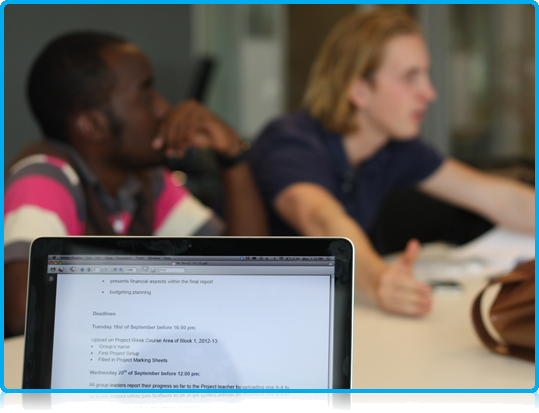A BirdsEyeView - Challenges ahead in 2013
A BirdsEyeView
When the first series of a Birdseyeview appeared, more than 10 years ago (1997-99), in the University magazine of IJsellend University in Deventer, it looked at the introduction of international students to the Dutch culture and environment. Since that time, many publications, notably provided by the Nuffic, do an excellent job at providing international students in the Netherlands with an insight into the country they are visiting, and stimulating Dutch students to go abroad.
During 2013, the re-vamped Birdseveview will look at the issues behind higher education in the Netherlands, and in Europe, from an international perspective, both from a private and a funded institution perspective.
 Challenges ahead in 2013
Challenges ahead in 2013
In 2013 international higher education in Holland will be challenged at two different levels; maintaining the Netherlands’s ambition of being in the top of the worlds’ knowledge economies; and, dealing with the balance of the international higher education export commodity.
Currently, the Netherlands is an attractive country for many international students, both those who come as “education tourists”, i.e. those who come to study, gain knowledge and experience, only to take it away again, and “education migrants”, i.e. those who come to study and are tempted to stay and work in the Netherlands economy for a significant period. Both groups are essential for the Dutch economy and neither must be under-estimated, in terms of impact. The “tourist students” who leave will have hopefully gained the trust and respect of the Dutch culture (an with it) and what it stands for, and those who stay will hopefully work to improve it.
The challenge for internationally orientated Dutch higher education institutions in 2013, and beyond, will be to ensure the quality of their international graduates, both in terms of becoming ambassadors for Dutch business, culture and values, as in being able to work within Dutch society in a way that brings economic and cultural benefit to the country.
 International students who have enjoyed an affordable higher education in Holland and return to their home countries, or elsewhere, it is hoped will further Dutch economic ties with the world. Those that choose to stay in the Netherlands as knowledge migrants will need to quickly adapt to Dutch company and organisation societies, and institutions need to ensure they deliver graduates not only with the knowledge, skills and competencies, but also the basic know-how of working and living in the Netherlands.
International students who have enjoyed an affordable higher education in Holland and return to their home countries, or elsewhere, it is hoped will further Dutch economic ties with the world. Those that choose to stay in the Netherlands as knowledge migrants will need to quickly adapt to Dutch company and organisation societies, and institutions need to ensure they deliver graduates not only with the knowledge, skills and competencies, but also the basic know-how of working and living in the Netherlands.
However with positive short and long-term student immigration there is a downside, and between the recruitment of these two groups of students, will develop an ever increasing pressure on institutions to act as officers of law and justice when it comes to monitoring the progress of their international students. Screening processes could start to resemble secret interrogation interviews, with recruitment staff being asked more and more to delve into a student’s “real” motivation to study. In times of economic recession and cutbacks, government’s ability to control unwanted immigration is made increasingly difficult, and to ensure that study is not a method used, higher education institutions in the Netherlands, the UK and throughout Europe will be forced to work harder with the authorities.
The first challenges in 2013, for internationally orientated higher education intuitions, will include quality recruitment with quality screening coupled with an excellent experience and output catering for two specific sets of stakeholders; namely the Dutch economy and Dutch society!
WUP - 07/01/12
577 words